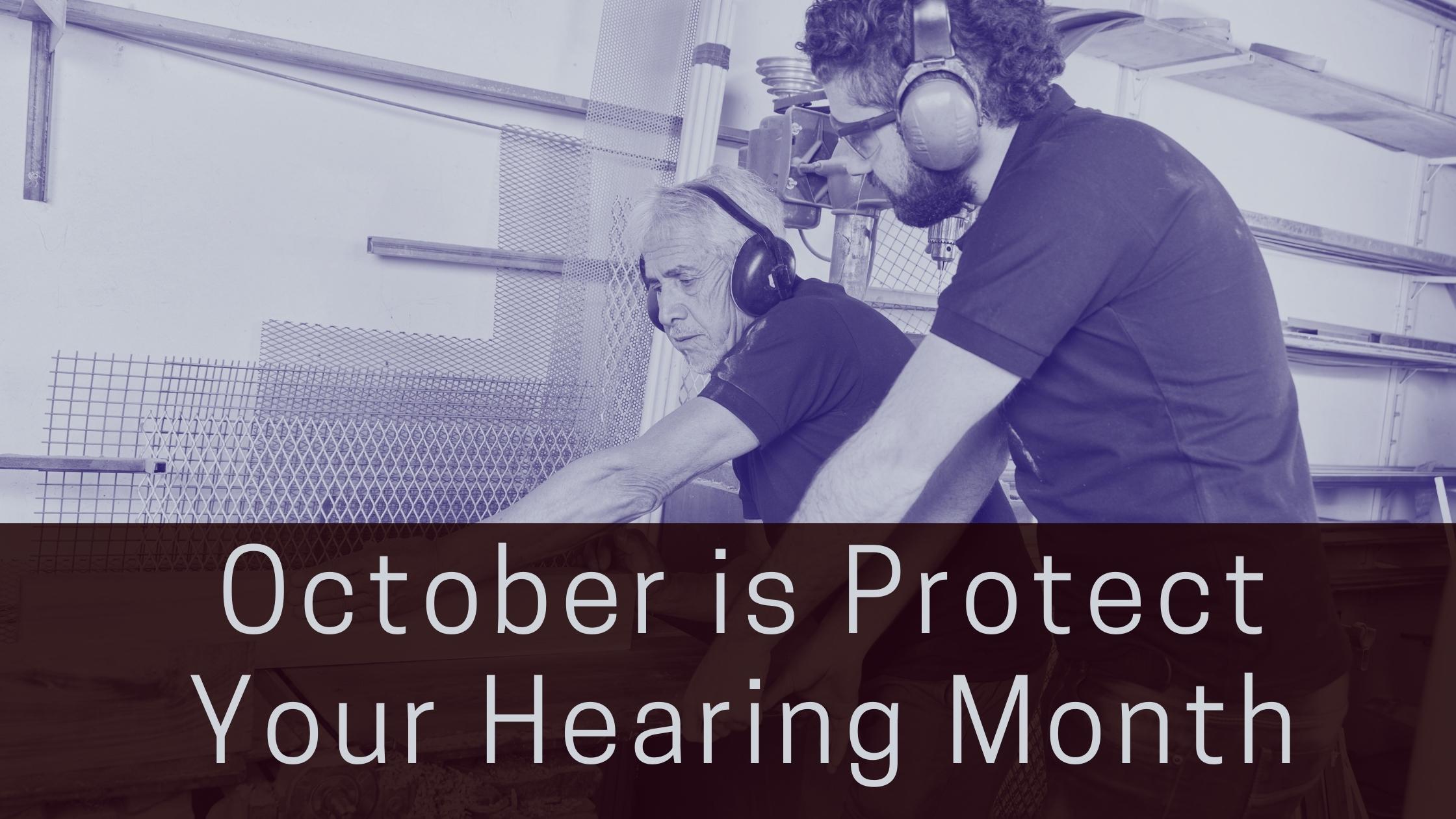This month is Protect Your Hearing Month. According to the Centers for Disease Control and Prevention (CDC), up to 40 million people in the United States may have noise-induced hearing loss. Noise-induced hearing loss (NIHL) can be avoided if you take precautions to safeguard your hearing and avoid extended exposure to potentially damaging sounds and noises. Some sounds are uncomfortably loud and easily identifiable as harmful, but do we always notice how loud and potentially harmful other everyday sounds are?
Our noise limits
The intensity of a sound is measured in decibels (dB). Decibels are a scale of progression rather than precise units of measurement like feet or yards. Every ten-decibel rise has an exponential effect; it’s not an extra ten units, but ten times the initial decibel level. The quietest sound that an adult with normal hearing can hear is 0 dB, and the loudest sound is more than 180 dB, which is the sound of a rocket taking off.
Hearing protection can help prevent hearing loss
The most straightforward approach to avoid noise-induced hearing loss (NIHL) is to protect your hearing because loud noise is one of the primary causes of hearing loss. According to the CDC, about 40 million US adults aged 20 to 69 have noise-induced hearing loss,” and one out of every four people who claim to have good hearing already has hearing damage.
Fortunately, NIHL can be avoided., and it’s the only cause of hearing loss that may be avoided. National Protect Your Hearing Month is an excellent example of this. It’s a whole month dedicated to raising public awareness about the significance of hearing and the use of proper hearing protection.
Hearing protection recommendations
Keep the volume down if you’re wearing stereo headphones or earbuds. Turn it up to drown out other noises in the room, but not too loudly. Some portable stereos have a maximum loudness of 126 decibels, similar to the ear-piercing sound of a jackhammer or chain saw. Consider switching from earbuds to headphones that mask outside noise so you can hear your music better at a moderate volume.
Wear earplugs, earmuffs, or both to reduce decibel levels when you know you’ll be exposed to loud noise. Earplugs or earmuffs can reduce sound levels by 15 to 30 decibels. Earplugs are better at blocking low-frequency noises, while earmuffs are better at blocking high-frequency noises. Wear earplugs and earmuffs together when you know you’ll be exposed to loud noise for an extended period.
If you’re working in a noisy environment, you’re entitled to some protection from your boss. According to the Occupational Safety and Health Administration, workers should not be subjected to persistent noise exceeding 90 decibels for more than eight hours, which has federal government authority to regulate noise in the workplace.
Aside from avoiding loud sounds, there are other things you may do to preserve your hearing.
Get a hearing test. Has your hearing been examined at least once a year if you have a hearing loss? If your hearing has declined since your last test, it’s critical to figure out why so you can get the help you need. Some specialists believe that preserving a good hearing level can help prevent additional hearing loss by keeping the brain tuned in to auditory nerve signals.
Stop smoking. If you smoke, make an effort to stop. Avoid being in the company of smokers. There is some evidence that smoking and secondhand smoke can raise the risk of hearing loss and a variety of other health issues. In animal studies, nicotine-like receptors have been discovered in hair cells, suggesting that smoking is hazardous to these cells. By narrowing blood vessels and reducing blood flow to the ears, smoking can also impair hearing. Although other studies have found no link, one indicated that current cigarette users were 70% more likely than nonsmokers to develop hearing loss. In total, 15 studies have looked into the effects of smoking on people’s hearing, with nine finding that smokers are more likely to have hearing loss.
Schedule a Hearing Consultation
This month, prevention is the key as we do everything we can to preserve our hearing for the future. If you think you might already have hearing loss, it’s not too late to do something about it. Contact us today to book a consultation.

